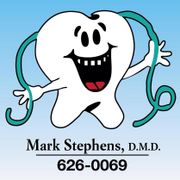
If you suffer from TMJ, you may be wondering about the effectiveness of BOTOX as a treatment option. BOTOX is a popular choice that many dentists recommend for those with TMJ. It’s been found to provide relief from the painful symptoms associated with this condition. The following article addresses some of the most frequently asked questions about BOTOX for TMJ.
Your Questions About BOTOX for TMJ Answered
What is BOTOX?
BOTOX is a neurotoxin that is commonly used to treat a variety of medical conditions and cosmetic concerns. When administered in small doses, it can temporarily paralyze muscles, which can help to alleviate pain and discomfort.
What happens during a BOTOX procedure for TMJ?
During a BOTOX procedure for TMJ, your dentist will inject small amounts of BOTOX into the muscles surrounding your jaw joint. This can help to relax these muscles and alleviate pain and discomfort associated with TMJ.
How does BOTOX treat TMJ?
BOTOX works by relaxing the muscles in your jaw that are causing your TMJ pain. This can help reduce inflammation and relieve pressure on your jaw joint. Over time, the muscles will become weaker and less prone to spasms, leading to long-term relief from TMJ symptoms.
How soon do the effects kick in?
You should start to feel the effects of BOTOX within a few days of your treatment. However, it may take up to two weeks for the full effects to become apparent. Some people may require multiple treatments before they experience significant relief from their TMJ symptoms.
How long do the benefits last?
Most people experience relief from TMJ symptoms for several months after BOTOX treatment. However, the exact duration of the benefits can vary depending on the individual. Some people may need to get BOTOX injections every few months to maintain their results.
Is any aftercare required?
After your BOTOX treatment, your dentist may recommend that you avoid strenuous physical activity for a day or two. You should also avoid rubbing or massaging the injection site, as this can cause the BOTOX to spread to unintended areas. Your dentist may also recommend that you apply ice or heat to the area to help reduce any swelling or discomfort.
If you are considering BOTOX for TMJ, it is important to put your trust in a reputable and experienced dentist. Mark Stephens DMD in Richmond, KY, has the expertise and compassion to help you find relief. He and his staff are committed to making their patients feel as comfortable as possible. To make an appointment, call them at (859) 626-0069 or visit their website for more information.
About the Business
Have a question? Ask the experts!
Send your question

